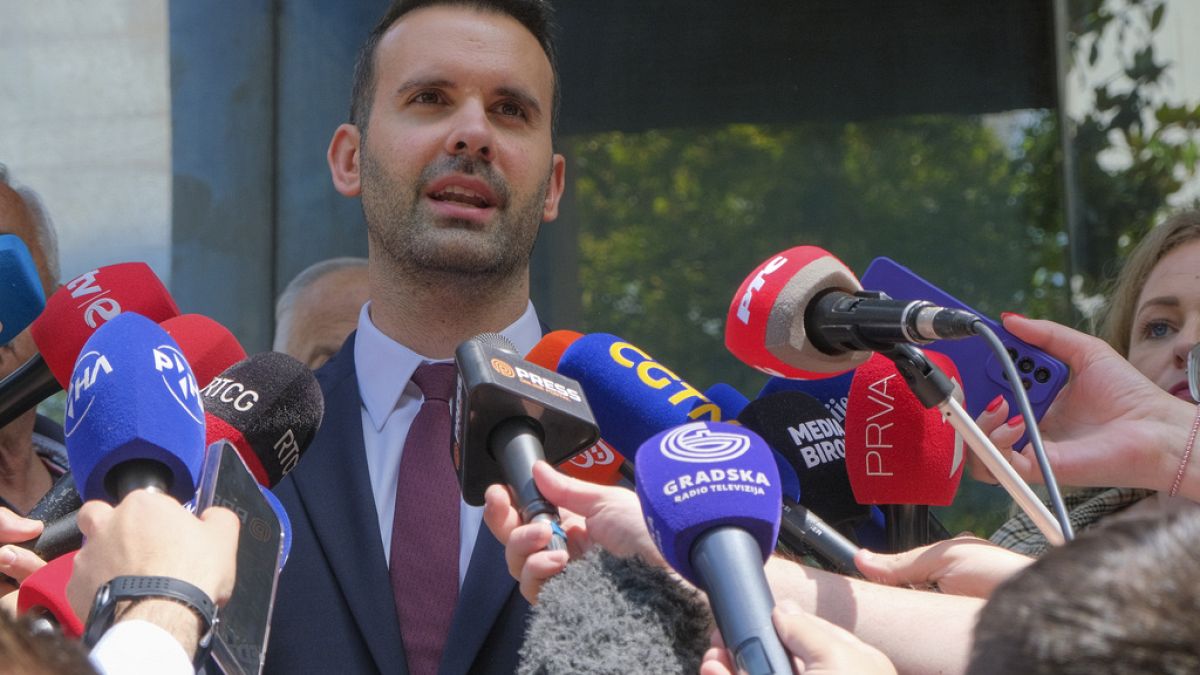Elections in Montenegro are the first in more than 30 years that do not feature Milo Djukanovic, Europe's longest-ruling contemporary politician.
Montenegro’s Europe Now Movement (PES) has won a snap election, according to preliminary results.
But the recently formed pro-EU, centrist party doesn't have enough support to form a government on its own.
PES received 25.6% of the vote, based on a projection by the Center for Monitoring and Research (CEMI).
“Tomorrow is a new day,” said its leader Milojko Spajic. “We are not going to be arrogant, and we will sit down with anyone who shares our values. We will obviously form a new pro-European government.”
Montenegro held an early parliamentary election on Sunday. It could put an end to deep political divisions and years of instability, which have hampered the small Balkan country's path to EU membership.
Yet, the turmoil is likely to continue, with no clear winner and difficult coalition talks ahead.
The pro-European Democratic Party of Socialists (DPS) and a group of small allied parties, which ruled Montenegro between 1990 and 2020, came in second with 23.7% of the vote, according to pollster CEMI.
These unofficial results were based on the results from representative samples of individual polling stations. The state election commission is due to announce the official election results in the coming days.
Some 542,000 voters were eligible to choose among 15 parties and coalitions fielding candidates, ranging from groups that are staunchly pro-Western to ones that are pro-Serbian and pro-Russian.
As the polls closed, the turnout was just over 56 per cent - the lowest in Montenegro since it split from Serbia to become an independent state in 2006.
Analysts say turnout was low because many voters are fed up with frequent elections that produced no major changes on the local political scene.
Economy and living standards dominated campaign
Unlike in previous elections, which focused on whether the country should lean towards the EU or Russia and Serbia, the economy and living standards dominated the agenda this time.
The election was Montenegro’s first in more than 30 years that does not feature Milo Djukanovic, who served almost continuously as the country’s prime minister or president since 2001.
He lost a presidential election in April and has taken a back seat in national politics.
His Democratic Party of Socialists has experienced a decline in popularity after three decades of dominance, with its new leadership was looking to make a comeback.
A pro-Serb coalition - For the Future of Montenegro - has emerged as a kingmaker in creating a future coalition government, winning some 15% of the vote Sunday, according to the independent pollsters.
Political promises not based on economic reality
Political analyst Ana Nenezic, executive director of the Centre for Monitoring and Research, said the focus on the economy “is beneficial for the society" but promises of salary hikes made by politicians “are not based on a real economy.”
She added based on the latest election forecasts, “I will be really surprised if we get a politically stable government.”
Ex-leader Djukanovic led Montenegro to independence from Serbia in 2006 and defied Russia to join NATO in 2017.
An alliance dominated by parties seeking closer ties with Serbia and Russia ousted his party from power in the previous parliamentary elections, held in 2020.
The new ruling coalition, however, soon plunged into disarray, which stalled Montenegro’s path toward the EU and created a political deadlock.
The government fell in a no-confidence vote last year but remained in office for months because of the stalemate.
Montenegro, a picturesque Adriatic Sea country of about 620,000 people, was once viewed as the country first in line to join the EU from the Western Balkans.
